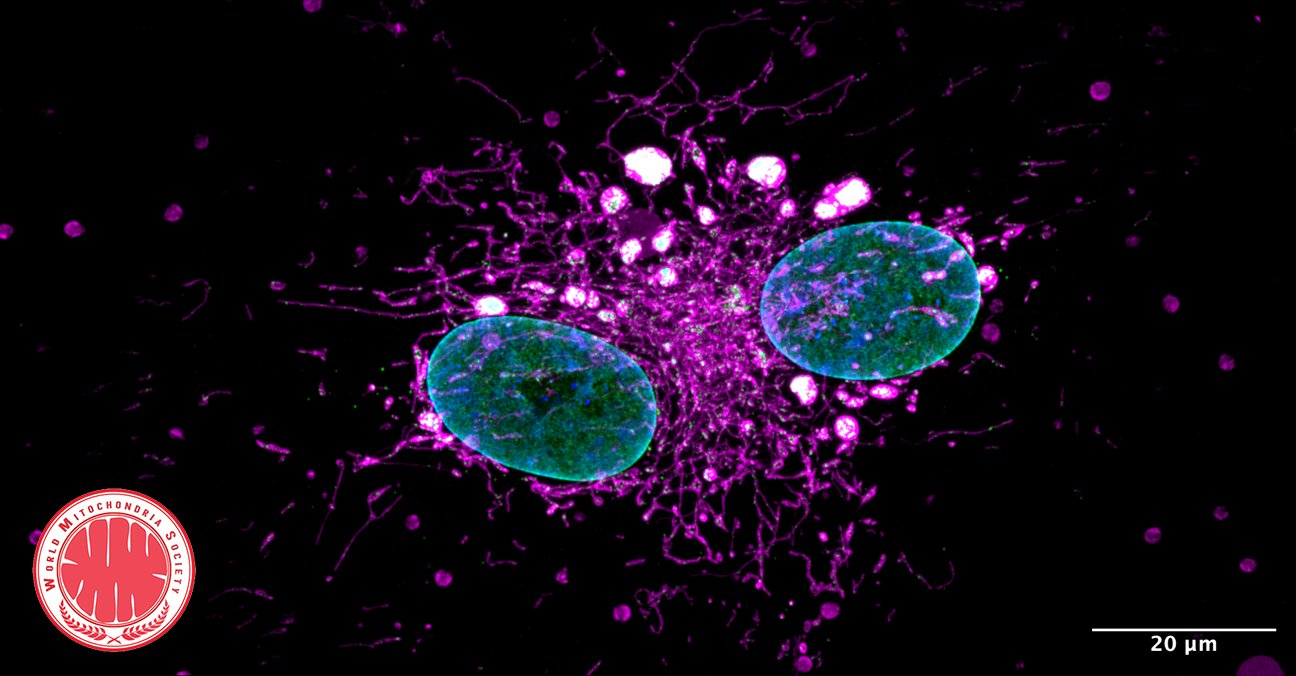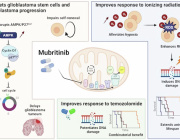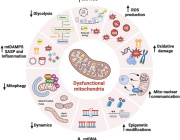Role of Light in Regulating Blood Glucose via Mitochondrial Stimulation
 It is a great pleasure to welcome Dr. Michael B. Powner, City University of London, United Kingdom, at Targeting Mitochondria 2024 this October in Berlin.
It is a great pleasure to welcome Dr. Michael B. Powner, City University of London, United Kingdom, at Targeting Mitochondria 2024 this October in Berlin.
Presentation title: Role of Light in Regulating Blood Glucose via Mitochondrial Stimulation.
About Michael B. Powner
Dr. Michael Powner is a Senior lecturer in Neurobiology, joining the Optometry division at City, University of London in February 2016. Dr. Powner is a neurobiologist who explores the mechanisms behind cellular stress during the early stages of retinal diseases; including age related macular degeneration (AMD) and diabetic retinopathy. He is also passionate about developing or adapting non invasive interventions, including optical and electrical stimulation, to improve patients health and quality of life.
In collaboration with Prof. Jeffery at UCL Institute of Ophthalmology, he is investigating the potential of red light (670nm) as a therapy for aging and ocular diseases, including age related macular degeneration.
World Mitochondria Society
Annual World Congress on Targeting Mitochondria
LinkedIn | Facebook
Investigating Mitochondria as Age-Old Drivers of Inflammation
 It is a great pleasure to welcome Dr. Stephen Tait, University of Glasgow, United Kingdom, at Targeting Mitochondria 2024 this October in Berlin.
It is a great pleasure to welcome Dr. Stephen Tait, University of Glasgow, United Kingdom, at Targeting Mitochondria 2024 this October in Berlin.
Presentation title: Investigating Mitochondria as Age-Old Drivers of Inflammation.
Stephen Tait's Research Interest
Cell death is a key tumour suppressor mechanism that must be inhibited in order for cancer to develop. Sensitivity to cell death also governs therapeutic efficacy because anti-cancer therapies often act by killing cells. The major form of programmed cell death is apoptosis, a process in which mitochondria play an essential role.
His research focuses upon understanding how mitochondria control cell death and addressing how this is deregulated in cancer. Clinical translation of our findings should lead to improvements of existing therapies and development of new approaches to enable tumour selective killing.
World Mitochondria Society
Annual World Congress on Targeting Mitochondria
LinkedIn | Facebook
Targeting Giant Mitochondria (Megamitochondria) in Human Liver Disease: Potential Diagnostic and Therapeutic Interventions
 It is a great pleasure to welcome Dr. Elena Palma, King's College London, United Kingdom, at Targeting Mitochondria 2024 this October in Berlin.
It is a great pleasure to welcome Dr. Elena Palma, King's College London, United Kingdom, at Targeting Mitochondria 2024 this October in Berlin.
Presentation title: Targeting Giant Mitochondria (Megamitochondria) in Human Liver Disease: Potential Diagnostic and Therapeutic Interventions.
Key Points
- Megamitochondria are disproportionately enlarged organelles with regular paracrystalline inclusions.
- Their significance and how they form are still under debate.
- Their detection has strikingly been linked to improved survival among patients with Alcohol-related liver disease.
- New models are needed to investigate this intriguing phenomenon and human precision cut liver slices represent a crucial advance for this purpose.
About Elena Palma
One of Dr. Palma's interests is developing ex vivo experimental models to study liver diseases and malignancies, using dynamic cultures of human precision-cut tissue slices.
Her research investigates the role of mitochondria in the pathogenesis and progression of Alcohol-related liver diseases with the final aim to target these organelles for therapeutic purposes.
World Mitochondria Society
Annual World Congress on Targeting Mitochondria
LinkedIn | Facebook
Mitochondria Iron Metabolism: Its Role in Pathogenesis of Diseases
 It is a great pleasure to welcome Dr. Sonia Levi, Vita-Salute San Raffaele University, Italy, at Targeting Mitochondria 2024 this October in Berlin.
It is a great pleasure to welcome Dr. Sonia Levi, Vita-Salute San Raffaele University, Italy, at Targeting Mitochondria 2024 this October in Berlin.
Presentation title: Mitochondria Iron Metabolism: Its Role in Pathogenesis of Diseases
In her talk Dr. Levi will cover the following:
- Discuss the importance of iron in the physiology of mitochondria.
- Mitochondria as the critical controllers of cellular iron homeostasis and their involvement in the mechanism of ferroptosis, an iron-dependent form of cellular death driven by lipid peroxidation.
- Example of how mitochondrial iron-deficiency and -overload impair mitochondrial metabolism, promoting disease development.
- Focus on mitochondrial iron-imbalance role in the initiation and progression of neurodegenerative diseases.
More information on Dr. Mysorekar's latest research.
World Mitochondria Society
Annual World Congress on Targeting Mitochondria
LinkedIn | Facebook
Mitochondria and Photomedicine: Advances in Infrared Light Treatment

Prof. Maik Hüttemann, Wayne State University, USA, and active member of the WMS Scientific Committee will be joining Targeting Mitochondria 2024 this October in Berlin.
Presentation title: Mitochondria and Photomedicine: Advances in Infrared Light Treatment.
Highlights
- Brain ischemia followed by reperfusion leads to neuronal death due to mitochondrial dysfunction.
- Mitochondrial Dysfunction: Reperfusion causes hyperactivity in the electron transport chain, leading to cell death.
- Current pharmacological treatments have limitations in effectiveness and timing.
- Specific Near Infrared Light (IRL) wavelengths inhibit mitochondrial dysfunction noninvasively.
- New waveguide technology was developed for safe and efficient IRL delivery into the brain.
- IRL treatment reduces neuronal death in animal models.
- Cytochrome c-COX-inhibitory IRL emerges as a promising non-pharmacologic, noninvasive therapy for cerebral ischemia/reperfusion injury.
World Mitochondria Society
Annual World Congress on Targeting Mitochondria
LinkedIn | Facebook
The Intersection of Mitochondrial Function and Psychiatric Disorders: Biomarkers, Gene Variants, and Patient Stratification
 It is a great pleasure to welcome Dr. Ana Andreazza, University of Toronto, Canada at Targeting Mitochondria 2024 this October in Berlin.
It is a great pleasure to welcome Dr. Ana Andreazza, University of Toronto, Canada at Targeting Mitochondria 2024 this October in Berlin.
Presentation title: The Intersection of Mitochondrial Function and Psychiatric Disorders: Biomarkers, Gene Variants, and Patient Stratification
Points to be covered:
1. Mitochondrial Dynamics in Health and Disease:
Explore the essential role of mitochondria in energy balance, neuronal signaling, and cellular health. Emphasize their influence on the brain and other critical organs, underlining the importance of mitochondrial health in overall bodily function.
2. Linking Mitochondrial Dysfunction to Mood Disorders:
Explore the relationship between mitochondrial dysfunction and mood disorders. Present clinical evidence showing their correlation and introduce cutting-edge mitochondrial-targeted metabolomics to improve patient classification and treatment paths.
3. Innovative Therapeutic Approaches:
Discuss advancements in mitochondrial transplantation and the creation of the MitoGENE risk score. These innovations aim to refine diagnostic and therapeutic strategies, supported by data from real-world clinical trials.
World Mitochondria Society
Annual World Congress on Targeting Mitochondria
LinkedIn | Facebook
New Biosensing Solutions and Optimized Pharmacological Inhibitors to Counteract Mitophagy in Cancer Cells
 It is a great pleasure to welcome Dr. Giulia Bertolin, Université de Rennes, France, at Targeting Mitochondria 2024 this October in Berlin.
It is a great pleasure to welcome Dr. Giulia Bertolin, Université de Rennes, France, at Targeting Mitochondria 2024 this October in Berlin.
Presentation title: New Biosensing Solutions and Optimized Pharmacological Inhibitors to Counteract Mitophagy in Cancer Cells
Highlights
- Mitochondria play vital roles in cell physiology, and dysfunctions are implicated in diseases like cancer and neurodegenerative disorders.
- Mitochondria are closely integrated with other cellular components, impacting functions such as cell cycle regulation and ATP production.
- The talk will explore how cancer cells exploit mitochondrial functions, focusing on the cell cycle protein AURKA, which is often overexpressed in breast cancer.
- Advanced fluorescence microscopy techniques are utilized to track AURKA activation in living samples, providing insights into its role in mitochondrial function.
- Ongoing research aims to develop sensitive biosensors for monitoring mitochondrial activation of AURKA and exploring pharmacological inhibitors to alter its interaction with mitophagy partners.
World Mitochondria Society
Annual World Congress on Targeting Mitochondria
LinkedIn | Facebook
Dynamics of Mitochondria: Regulation of Nucleoid Morphology to Protect Mitochondrial Function
 Prof. Naotada Ishihara, Osaka University, Japan, will be joining Targeting Mitochondria 2024 this October in Berlin.
Prof. Naotada Ishihara, Osaka University, Japan, will be joining Targeting Mitochondria 2024 this October in Berlin.
Presentation title: Dynamics of Mitochondria: Regulation of Nucleoid Morphology to Protect Mitochondrial Function.
Highlights
- Discuss the connection between mitochondrial dynamics (fusion/fission) and the behavior of mtDNA nucleoids within the cell.
- Mitochondrial membrane activity influences the shape and distribution of mtDNA nucleoids.
- Abnormalities in both mitochondrial morphology and nucleoid structure are linked to certain diseases.
- Expose the new methods to manipulate nucleoid structures, improving mitochondrial and cellular functions in some pathogenic conditions.
World Mitochondria Society
Annual World Congress on Targeting Mitochondria
LinkedIn | Facebook



























































